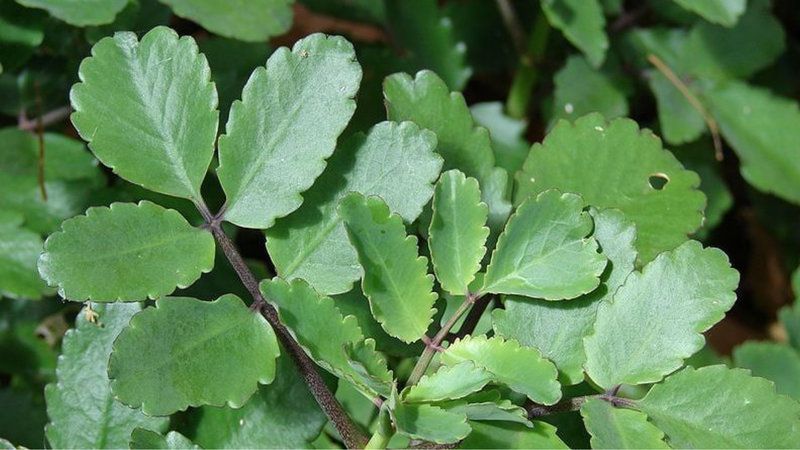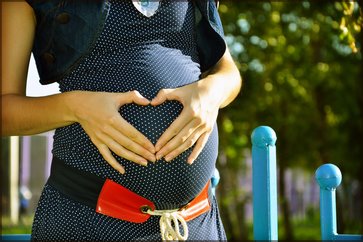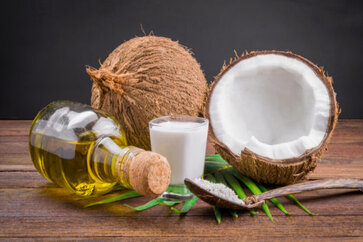Patharchatta Plant: Benefits, How To Use Patharchatta Leaves?
Patharchatta Plant is a small shrub that grows around the height of 1-4 feet and is well known for its medicinal uses. It is in particular known for the treatment of kidney stones, ulcers, wounds, bleeding as well as piles.
Patharchatta Plant plant in English is known as “Miracle Leaf” or “Life Plant” and in Hindi is called Patharchur, Paan-futti, Patharchatta Plant, etc. It is a plant that has been used in Ayurvedic medicine for ages. It has been found helpful in many ailments due to its tremendous medicinal properties in it.
Patharchatta Plant In
- Hindi: Jakh Me Hayat, Panfutti, Patherchart.
- Sanskrit name: Parn beej, hemsagar, Asthibhaksha, Parnabija, Parnabijah, Pashanabheta.
- Tamil: Ranakalli.
- Bengali: Koppata.
- Gujarati: Ghaymaari.
- Bengali: Koppat, Patharkuchi, Gatrapuri, Kaphpata, Koppata, Pathorkuchi.
- Kannada: Kaadubasale, Dadabadike, Patrajeeva.
- Malayalam: Elachedi, Elamulachi, Ilamarunnu, Ilamulachi.
- Telugu: Ranapala.
- Tamil: Runa kalli, Malaikkalli, Runakkalli.
- Unani: Zakhm-hayaat, Zakhm-e-Hayaat, Pattharchoor, Pattharchat.
- Siddha: Ranakkalli.
- Tripura: Jeos, Naproking, Pathorkuchi.
Patharchatta Plant Names In The World
- Chinese: Wan Fei, Luo Di Shen Gen.
- English: Life Plant, Goethe Plant, Cathedral Bells, Miracle Leaf, Air Plant, Floppers.
- Estonian : Sulgjas Kalanhoe.
- Filipino: Katakataka, Kataka-Taka.
- German : Goethe-Pflanze.
- Ilokano/ Iloko : Abistrana, Abisrana.
- Indonesian : Suru Bebek, Cocor Bebek.
- Japanese : Seiron-Benkei, Sohichi-Gusa.
- Kingdom of Tonga: Pipivao.
- Latvian : Plūksnainā Kalanhoja.
- Lithuanian (Lietuvių): Plunksninė Kalankė.
- Polish: Pierzasta.
- Quechua: Ch’uqriyuyu.
- Russian: Kalanchoe Peristoe.
- Spanish : Hoja Fresca, Flor De Arete.
- Tagalog: Katakataka.
- Tibeto-Burman: Jeos, Jeus, Patharkuchi, Roah-Kapanghey.
- Ukrainian (Українська): Каланxое Пірчасте.
- Vietnamese (Tiếng Việt): Cây Lá Bỏng, Cây Sống Đời, Cây Thuốc Bỏng.
Where are Patharchatta plants found?
Patharchatta plants are mostly found in countries like Asia, New Zealand, Australia, Macaronesia, West Indies, Galapagos, Mascarenes, Polynesia, Melanesia, and Hawaii. In countries like Hawaii, it is regarded as an invasive species. It is also found widely in the Philippines and commonly known as katakatoka or kataka-toka which means “astonishing” or “remarkable”.
Ayurvedic Properties Patharchatta Plant
- Guna (qualities): Laghu (light to digest), Rooksha (Dryness)
- Rasa (taste): Kashaya (Astringent), Amla (sour)
- Vipaka (taste conversion after digestion): Madhura (sweet), sheet (Coolant)
- Tridosha effect: Kapha-Pitta Hara (Reduces the vitiated Kapha and Pitta dosha), Vranaropana (wound healing), Raktastambhana (removes coagulation of blood).
Ayurvedic Medicinal Uses Of Patharchatta Plant
- Eye pain: Apply juice made from fresh leaves all around the eyes; it helps to cure pain in the white part of the eyes.
- Constipation: Make tea from dried leaves and consume you will get relief from constipation.
- Heart health: Consume juice in the morning; it will improve the health of the heart.
- Dysentery: Consume juice extract from the leaves with honey it will get you relief from dysentery.
- Wounds: Take leaves and slightly warm the leaves crush them and tie them to the wound, it will help to heal the wound faster.
- Fever: Consume the juice; the antipyretic property in the leaves will help to relieve fever symptoms.
- Leucorrhoea: A woman who suffers from leucorrhoea disorder should consume the decoction of the leaves twice a day. It helps to delay the flow of blood within the blood vessels.
- Mucous: Consume juice made from Stem as well as the leaves; take daily to rid the body of mucous and waste matter.
- Swelling: Apply the paste made from leaves on the swelling; the anti-inflammatory property in it will reduce it significantly.
- Piles: Consume juice made from the extract of the leaves twice a day, it will help to get a ridge of piles.
- Grey hair: Applying juice on hair regularly can help to prevent the greying of hair; it will also make hair healthy.
- Hemorrhages: Take a few leaves to pound it and apply them as poultices to the soles of the feet to stop hemorrhages.
- Liver: Ailments like jaundice can be cured by consuming juice; it will also boost the function of the liver.
- Kidney: Regular consumption of juice can help in many kidney-related disorders.
- Ear pain: Put a few drops of juice in an ear, it will get relief from earaches.
- Diabetics: Consume juice made from leaves daily, twice a day see your drop in blood sugar levels significantly.
- Boils: Apply fresh juice on the boils; it is also helpful in redness as well as swelling of the skin.
- Colds and coughs: Consume the juice of leaves along with sugar candy; it will also help people suffering from asthma.
- Immunity: Consume tea made from the dried leaves have it twice or thrice a day, it will help you fight free radicals better.
- Stomach ache: Consume decoction made from the leaves, it will help with a stomach ache and you will get relief.
- Worms: Consume juice from leaves, an anthelmintic property in Bryophyllum pinnatum that will help to remove worms in the intestine effectively.
- Weight management: Consuming juice of Bryophyllum pinnatum leaves regularly will help to lose weight.
- Purifies blood: It is a miracle leaf that has a blood-purifying agent, it removes the toxins from the body and helps improve your health.
- Skin ulcers: Apply juice made from crushed leaves to the infected area, it will cure and bring relief from also skin ulcers.
How to use Patharchatta Leaves?
1. Kidney stones
- Take 40-50 ml decoction of the whole plant twice a day.
- The other way is, to take decoction with (500 mg Shilajit + 2 gm honey). Mixed it and consume it twice a day.
2. Bleeding diarrhea
- Take 3-6 gm of the juice of fresh leaves, mix cumin seeds to it, and add double the amount of ghee. Take the mixture thrice a day. It will help to control the blood flow in diarrhea.
3. Urinary disorders
- For disorders related to the urinary system, Take 5 ml juice of leaves twice a day.
- For urine-related disorders take, 40-60 ml of decoction mixed with 2 gm of honey, twice a day.
4. Diuretic action
- Take 40-60 ml of decoction daily in the morning and evening. It will help to cure most urinary disorders; it is also good for curing excessive thirst.
5. Headache
- Take 3-4 fresh leaves, crush them, and apply them on the forehead, it will help to cure headaches.
6. Hypertension
- Take 2-5 fresh leaves from aerial parts, extract them, and consume them, it will help in controlling blood pressure.
7. Ulcer/sprains/insect stings
- Take 5-6 fresh leaves to crush and apply them as a poultice to the affected area. Repeat this twice a day, in the morning and night, it will benefit all these ailments.
8. Chest cold
- Take 3-4 leaves and juice them add a pinch of salt and consume this three times a day for as long as needed.
9. Leukemia
- Take 5-10 fresh leaves from aerial parts, extract them, and consume them twice a day, it will help with blood cancer.
10. Vaginal disorders
- For vaginal disorder, take 40-60 ml decoction made from fresh leaves, add 2 gm of honey in it, and consume twice a day.
11. Boils
- Take leaves and heat leaves on the frying pan, crush them, and tie it as a poultice on the affected area. It will cure boils, redness, and swelling too.
Medicinal Properties Of Patharchatta Leaves
There are many medicinal plants that are used for maintaining health in a specific condition. They are used both in modern medicine as well as in traditional medicine. The Food and Agriculture Organization Department 2002 estimated that there are over 50,000 medicinal plants that are used across the world for their medicinal properties. Below are given Patharchatta Plant medicinal properties that are used for different ailments.
1. Astringent
It is properties that can help to improve the skin’s appearance; it minimizes the pores. Astringent is generally used as an application for cleansing, but before moisturizing. In a natural form, astringent can be excellent for all skin types. Applying astringent two to three times daily can keep your skin clear and fit.
2. Analgesic
It is a property that is used as a medication that basically relieves pain. Good-natured analgesics work as Aspirin; it indirectly stops the enzyme-controlled synthesis of Prostaglandins. It restricting the synthesis process of Prostaglandins reduces pain, fever, and inflammation.
3. Anti-aggregate
It is also known as Anticoagulants or antiplatelets, it helps to eliminate or reduce the risk of blood clots. It is often called blood thinners, but it doesn’t really thin your blood. It works by blocking or breaking up dangerous blood clots that are created in blood vessels or the heart.
4. Anti–dysenteric
It is a property that can help in relieving or preventing dysentery. It is widely helpful for treating diarrhea, constipation, colic, etc. Dysentery is an ailment that is resulted in due to various types of infectious pathogens such as viruses, parasites, bacteria, etc.
5. Anti-inflammatory
It is a property that helps in reducing inflammation by acting on systems of the body. Inflammation generally develops when chemicals from the body’s white blood cells are released into the blood or affected tissues. To safeguard the body from foreign bodies our body releases the compounds that increase the blood flow to the part of the wound or infection, which results in warmth and redness.
6. Antiseptic
It is a property that is capable of preventing infection by binding the growth of destructive agents. It works like a chemical, such as chlorhexidine or cetrimide that demolishes or prevents the growth of infirmity micro-organisms. Externally Antiseptics are used to cleanse wounds and internally to treat infections of the intestine and bladder.
The best examples of antiseptics are iodine, hydrogen peroxide, povidone-iodine, polyhexanide, boric acid, alcohol, benzalkonium chloride, etc.
7. Antispasmodic
It is a type of properties that are used to smooth muscle relaxation, to relieve spasms of impulsive muscle, particularly in tubular organs of the gastrointestinal tract. It is effective in preventing spasms of the stomach, urinary bladder, or intestine. It acts by delaying the natural activity of the gut; it relaxes the muscles in the stomach and intestines.
8. Cytotoxic
It is also known as antineoplastics, it is a group of medicines that contain chemicals, which are toxic to cells, cell-killing, or cell-toxic. They prevent their replication or overgrowth of cells, it is used to treat cancer, particularly. Besides this, properties can also be used to treat a number of other disorders such as multiple sclerosis and rheumatoid arthritis.
9. Diuretic
It is also recognized as a water pill, these properties are helpful in treating a variety of conditions; such as glaucoma, high blood pressure, edema, etc., It is effective; it promotes the elimination of urine/agent that increases the amount of urine excreted. It helps to get rid of body salt (sodium) and water and makes kidneys release more sodium into your urine.
10. Disinfectant
Disinfectant properties are generally used to kill bacteria on non-living surfaces like floors and lifeless objects. Disinfectant is mainly used as an antiseptic which is applied to clean wounds before medication. Some disinfectants have the potential to kill a wide range of microorganisms while others can only kill a specific type of bacteria.
11. Emollient
It is a property that keeps the skin moist and flexible and prevents cracks in the skin. They are non-cosmetic or natural moisturizers that come in the form of creams, ointments, gels, lotions, etc. Emollients are safer for the skin and one can feel more comfortable and less itchy. It is a key ingredient that soothes and protects irritated or inflamed skin; it moisturizes and replenishes the skin’s natural tissues.
12. Hemostatic
An antihemorrhagic is a substance that promotes hemostasis means stops bleeding. Hemostasis is also known as a hemostatic or a styptic agent a specific type of antihemorrhagic agent that works by contracting tissue to seal injured blood vessels. It is helpful in the first stage of wound healing.
13. Immunomodulatory
It has a chemical agent (methotrexate or azathioprine) that modifies the immune response or boosts the function of the immune system. It, in other words, motivates antibody formation or the inhibition of white blood cell activity. It provides toxic or immunotoxic effects; it stops allergic reactions or the destruction of immune effectors.
14. Styptic
It has a property that is capable of stopping bleeding when it is applied to a wound. A wound stops bleeding due to the process of clot formation called coagulation. Today Styptic Pencil is used to seal small cuts and nicks, especially those caused during wet shaving.



























Good article on Patharchatta plant or bryophyllum. This plant has a miraculous effects on number of dieases. I was only aware that this plant or it’s leaves can cure some dieseases like kidney stone and one or more. Bryophyllum has no of benefits. I have a question, Is it good to take normally once in a week or two. Or it should be taken when necessary or suffering from any diesease only?